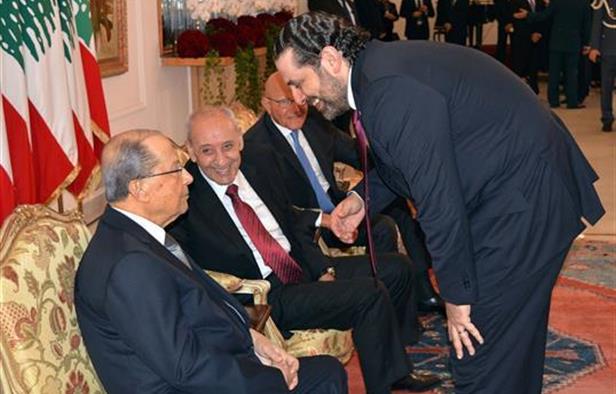Why Lebanon parliamentary poll is unlikely to take place next month
Josh Wood/The National/April 18/17
BEIRUT/Lebanon is a country that likes to pride itself on being a democracy. But it is also a country that has not had parliamentary elections in nearly eight years, whose rulers many now consider to be illegitimate. Parliament has twice voted to extend its term since 2013, citing instability caused by the Syrian war next door and, later, the country’s lack of a president, which resulted in a power vacuum. But although Lebanon now has a president and a functioning government, and the spillover of violence from Syria has subsided, it seems unlikely that a general election planned for May 21 will actually take place.
The excuse this time around is an issue that has afflicted parliament for years: The politicians are unable to come up with a new voting law, one which would be likely to shake up the sectarian balance of power in the country.
Political representation in Lebanon remains based on sectarian quotas that are still largely determined by a census carried out more than 80 years ago. Although the boundaries for electoral districts have been redrawn on several occasions through the years, some critics still say their sects are treated unfairly while others want to do away with a voting system that is rooted in sectarianism altogether. The one thing Lebanon’s perpetually bickering MPs do agree on, however, is that a new electoral law must be made. Last week parliament planned to extend its term yet again, but president Michel Aoun instead suspended parliament for a month, giving members one last shot at reaching an agreement on a new voting law. With the country’s sectarian political parties seeking advantage for themselves and unwilling to potentially sacrifice seats in parliament, compromise is elusive.
Despite the president’s intervention – which came amid calls for street protests against the government – there is not much optimism among Lebanese that there will be an election next month. “They have been trying to agree on a (new voting) law for the past ten years and they couldn’t reach any kind of compromise. In my view, if this was impossible in the past, I’m not seeing any chance to get it done … I may be wrong, but I’m not seeing any likelihood of an agreement on a law in the coming month,” said Sami Nader, the director of Beirut’s Levant Institute for Strategic Affairs. Even if Lebanon’s political parties somehow managed to agree on a new voting law, Mr Nader said it would probably take many months for the country – which is beset by inefficiency and corruption – to prepare for a parliamentary election, making a vote unlikely this year regardless.
“Don’t forget we’re in Lebanon, not Sweden,” he added.
But by not holding an election, Lebanon is “no longer a democracy” said Ramez Dagher, a Lebanese political blogger. “The moment they vote for the third extensions, those days of ‘democracy’ would be gone.”Despite being a respected commentator on Lebanon’s often confusing political scene, Mr Dagher has never voted in an election. The last time there was a parliamentary ballot in Lebanon he was too young. The prospect of a further extension to the current parliamentary term has rekindled public anger towards the Lebanese government.
“They (MPs) have failed the Lebanese people, they have deceived them, they have lied for so many years saying they’re going to resolve this issue and they never did,” said Lucien Bourjeily, a theatre director and prominent member of the You Stink movement. You Stink was formed in 2015 to protest against a waste management crisis in Beirut but quickly evolved into a movement against the sectarian political system and government corruption.
As parliament was poised to prolong its term last week, You Stink and other civil society groups planned protests in Beirut, but cancelled them as the president gave parliament one last chance to agree on a voting law. If parliament does extend its term, the activists have promised to bring back the kind of protests that crippled central Beirut in 2015. Last week the country’s most powerful Christian political parties — the president’s Free Patriotic Movement and the Lebanese Forces — also threatened to send their supporters out on to the streets and called for a general strike. Given that both parties are still represented in parliament, activists have accused them of hypocrisy.
You Stink, along with other anti-sectarian movements that have sprung up in recent years, are eager to field their own candidates, but are unable to do so while Lebanon’s sectarian parties continue to block elections. “We are in a vicious circle where we are waiting for elections to do our big campaigning and to help and support new candidates who might really bring change to Lebanon, but at the same time they (parliament) are not allowing this to happen,” added Mr Bourjeily.






















